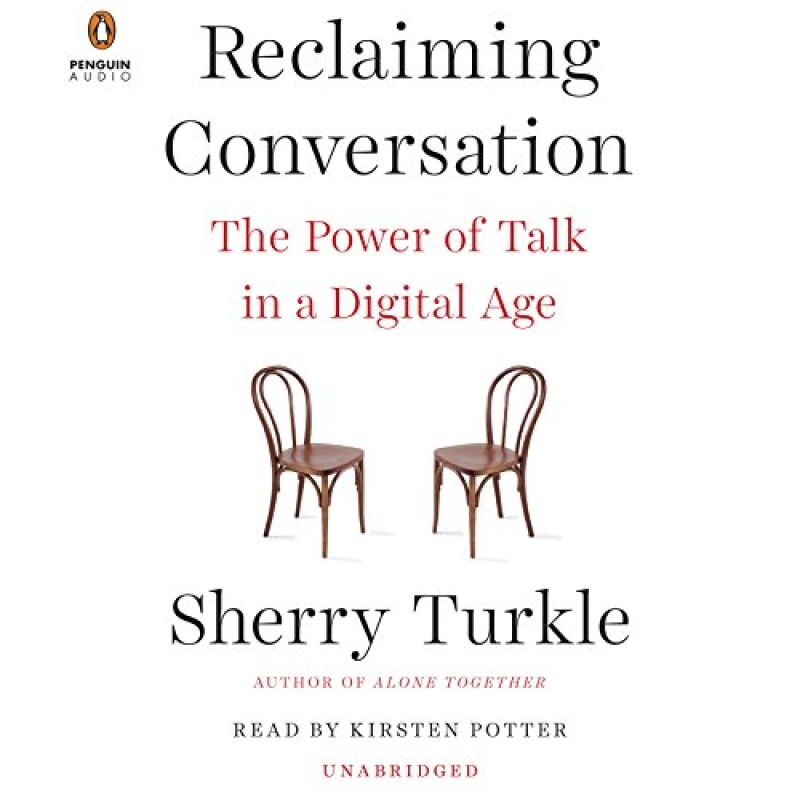Reclaiming Conversation (the power of talk in a digital age) by Sherry Turkle
My Rating

As part of my preparation to attend my recent 7 day intensive Hoffman Process, I was required to wean myself off digital technology. I’ve given up my Apple Watch, my wearable measurable devices and an unhealthy addiction to the BBC News app and various elements of social media. Having done without any tech for the last nine days, I feel far healthier by the digital detox, less stressed and more present and connected to my feelings, my body, and my spiritual self. I recommend it thoroughly. At the same time as this healthy digital detox, I chose to read “reclaiming conversation” and found it a very healthy challenge to the status quo.
The Hoffman course created a fabulous sense of psychological safety and allowed some amazing deep conversations to go on between comparative strangers, without the interruption of any form of technology, especially our mobile phones that steal our attention. I myself intend to spend much more time in one-to-one and group conversations and less time addicted to my phone or laptop.
What about you?
I very much enjoyed elements of the review by Jonathan Franzen New York Times:
“Sherry Turkle is a singular voice in the discourse about technology. Turkle’s previous book, “Alone Together,” was a damning report on human relationships in the digital age. By observing people’s interactions with robots, and by interviewing them about their computers and phones, she charted the ways in which new technologies render older values obsolete.
Her new book, “Reclaiming Conversation,” extends her critique, with less emphasis on robots and more on the dissatisfaction with technology reported by her recent interview subjects. She takes their dissatisfaction as a hopeful sign, and her book is straightforwardly a call to arms: Our rapturous submission to digital technology has led to an atrophying of human capacities like empathy and self-reflection, and the time has come to reassert ourselves, behave like adults and put technology in its place. As in “Alone Together,” Turkle’s argument derives its power from the breadth of her research and the acuity of her psychological insight. The people she interviews have adopted new technologies in pursuit of greater control, only to feel controlled by them. The likably idealized selves that they’ve created with social media leave their real selves all the more isolated. They communicate incessantly but are afraid of face-to-face conversations; they worry, often nostalgically, that they’re missing out on something fundamental.
Conversation is Turkle’s organising principle because so much of what constitutes humanity is threatened when we replace it with electronic communication. (If we’re unable to be separated from our smartphones, Turkle says, we consume other people “in bits and pieces; it is as though we use them as spare parts to support our fragile selves.”) Through the conversational attention of parents, children acquire a sense of enduring connectedness and a habit of talking about their feelings, rather than simply acting on them.
A recent study shows a steep decline in empathy, as measured by standard psychological tests, among college students of the smartphone generation. “Reclaiming Conversation” is best appreciated as a sophisticated self-help book. It makes a compelling case that children develop better, students learn better and employees perform better when their mentors set good examples and carve out spaces for face-to-face interactions.”